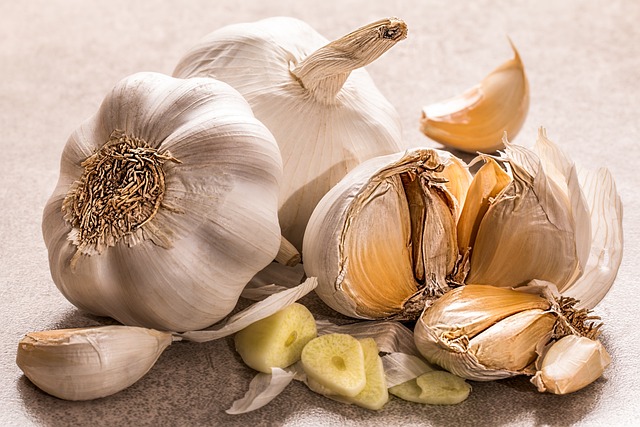Discus fish are popular with aquarium enthusiasts due to their vibrant colors and unique appearance. However, many fish owners may wonder if discus fish can eat garlic.
Garlic is often used as a natural remedy for various health issues in humans, and some fish owners believe it can also benefit their aquatic pets.
Garlic has been known to have antibacterial and antifungal properties, making it a popular choice for treating infections in fish.
Some fish owners also believe feeding their fish garlic can help boost their immune system and prevent diseases.
However, it is essential to note that not all fish can tolerate garlic, and it may have adverse effects on some species. So, can discus fish eat garlic? Let’s find out.
Garlic and Fish: A General Overview
Garlic is a popular ingredient in many dishes, but can it be fed to fish?
The answer is yes but with some caution. Garlic has been known to have some health benefits for fish, but too much of it can be harmful.
Garlic contains Allicin, a compound with antibacterial, antifungal, and antiviral properties. These properties can help boost a fish’s immune system and protect it from diseases.
Garlic can also help improve a fish’s appetite, making it more willing to eat.
However, it’s important to note that garlic should not be the sole source of a fish’s diet. Fish still need a balanced and varied diet to get all their nutrients.
Additionally, too much garlic can be harmful to fish, causing digestive issues and even death in extreme cases.
When feeding fish garlic, it’s best to use it as a supplement to their regular diet. Crushed garlic can be added to fish food or soaked in tank water and fed to fish.
It’s recommended to start with a small amount and gradually increase it over time.
In summary, garlic can be a beneficial supplement to a fish’s diet, but it should be used in moderation and as part of a balanced diet.
Potential Benefits of Garlic for Discus Fish
Garlic is a popular natural supplement known to provide several health benefits to fish. Discus fish, in particular, can benefit from adding garlic to their diet. Here are a few potential benefits of garlic for discus fish:
Boosting Immune System
Garlic has been shown to have immune-boosting properties in fish. It contains Allicin, a compound that has antibacterial, antiviral, and antifungal properties.
Adding garlic to the discus fish diet can help boost their immune system and protect them from various diseases and infections.
Enhancing Appetite
Discus fish can be picky eaters and sometimes refuse to eat certain types of food. Adding garlic to their diet can help enhance their appetite and encourage them to eat more.
Garlic has a strong aroma and flavor that can stimulate the appetite of discus fish.
Parasite Control
Garlic is also known to have parasite-control properties in fish. It can help prevent and control various types of parasites that can affect the health of discus fish.
Adding garlic to their diet can help keep them healthy and free from parasites.
Overall, garlic can be a beneficial supplement to the discus fish diet. It can help boost their immune system, enhance their appetite, and prevent parasites.
It is important to note that garlic should be used in moderation and not overused, as it can adversely affect fish if used excessively.
How to Feed Garlic to Discus Fish
Garlic Infused Fish Food
Garlic infused fish food is one of the easiest and most convenient ways to feed garlic to discus fish. Many commercial fish foods are available that are infused with garlic.
These foods can be fed to discus fish on a regular basis, and they will help boost the fish’s immune system and overall health.
When choosing a garlic-infused fish food, please read the label carefully to ensure it is suitable for discus fish. Some fish foods may contain harmful ingredients to discus fish, so it is essential to choose a high-quality product.
Fresh Garlic Method
Another way to feed garlic to discus fish is by using fresh garlic. This method involves crushing or mincing fresh garlic cloves and mixing them with the fish’s food.
To use the fresh garlic method, follow these steps:
- Crush or mince fresh garlic cloves.
- Mix the garlic with the fish’s food.
- Feed the food to the discus fish.
It is essential to use fresh garlic, not garlic powder or salt. Garlic powder and garlic salt may contain harmful additives to discus fish.
When using the fresh garlic method, it is crucial to start with a small amount of garlic and gradually increase the amount over time. Too much garlic can harm discus fish, so monitoring the fish’s behavior and adjusting the amount of garlic accordingly is vital.
Feeding garlic to discus fish can be a great way to boost their immune system and overall health. Whether using garlic-infused fish food or the fresh garlic method, it is essential to choose high-quality products and monitor the fish’s behavior to ensure they are not harmed.




